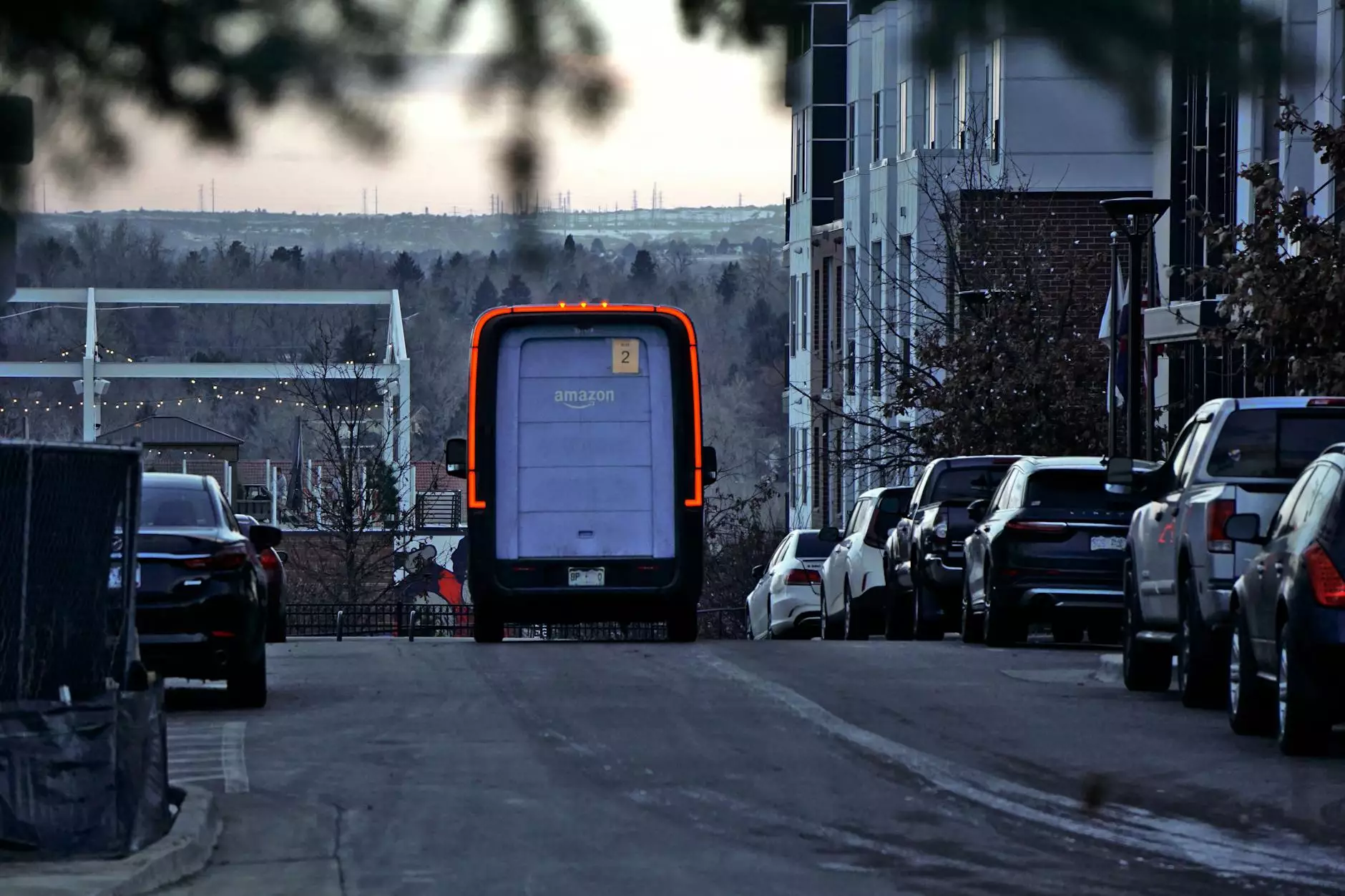Understanding the Business of Street Sweepers: Costs, Benefits, and Industry Insights

The landscape of urban maintenance and sanitation is constantly evolving, with street sweepers playing a central role in maintaining clean, safe, and aesthetically pleasing city environments. Businesses involved in the production, sale, and operation of street sweepers find themselves at the intersection of technological innovation and environmental responsibility. A key question that prospective buyers and industry stakeholders often ask is: “What is the street sweeper cost?” This article provides an in-depth exploration of the various facets surrounding the costs and benefits of street sweepers, emphasizing how they impact business success and urban organizational efficiency.
Comprehensive Overview of Street Sweepers in Modern Urban Management
Street sweepers are specialized vehicles engineered to clean streets, parking lots, airports, and other urban surfaces. They serve multiple industries, including municipal governments, private companies, and large corporations involved in property management. Their significance extends beyond mere aesthetics; they are instrumental in pollution control, public health, and compliance with environmental regulations.
The Evolution of Street Sweeper Technology
The evolution of street sweepers is marked by technological milestones that have increased their efficiency, environmental friendliness, and operational versatility. From bulky, manually operated models to modern, sophisticated machines equipped with GPS, sensors, and eco-friendly engines, the industry has seen remarkable progress.
Types of Street Sweepers and Their Business Implications
- Mechanical Sweepers: Traditional models primarily use rotary brushes and vacuum systems. They are cost-effective and suitable for light to medium cleaning tasks.
- Regenerative Air Sweepers: Use high-powered air streams to sweep debris into a hopper, ideal for heavy debris and large areas.
- Vacuum Sweepers: Employ suction to pick up fine dust and dirt, essential for areas requiring high cleanliness standards.
- Crab and Side-Winder Sweepers: Designed for specific urban layouts, facilitating maneuverability and efficient coverage in constrained spaces.
Dissecting the Street Sweeper Cost: What Influences Pricing?
The street sweeper cost varies widely based on numerous factors. An understanding of these elements is essential for businesses looking to make an informed investment, optimize operational budgets, and forecast long-term savings.
Initial Purchase Price
Freshly manufactured street sweepers typically range from $100,000 to over $350,000. The cost is influenced by the sweeper’s size, capacity, and technological sophistication. For example, a basic mechanical sweeper with manual controls might be on the lower end, while an advanced, GPS-enabled, emissions-compliant model commands a premium.
Operational and Maintenance Costs
Beyond the initial purchase, ongoing expenses include fuel, routine maintenance, repair parts, and operator wages. Certain modern models are designed to reduce fuel consumption and emissions, which can significantly decrease operational costs in the long run.
Technological Features and Their Impact on Cost
Incorporating features such as hybrid engines, autonomous driving capabilities, and IoT-connected sensors influences the overall street sweeper cost. While these features may elevate upfront costs, they often translate into increased efficiency, lower labor costs, and improved compliance with environmental standards.
Size and Capacity Considerations
Larger sweepers with higher debris capacities are typically more expensive but allow for higher productivity. This saves businesses time and labor, enhancing overall cost-effectiveness, especially in large-scale municipal or industrial applications.
Benefits of Investing in Modern Street Sweepers for Business Success
Investing in high-quality street sweepers offers numerous benefits that can substantially impact a business’s operational efficiency and reputation.
Enhanced Operational Efficiency
Modern street sweepers equipped with advanced navigation and cleaning systems can cover larger areas more quickly and thoroughly. This increases productivity, reduces labor hours, and optimizes resource utilization.
Environmental Compliance and Sustainability
Newer models feature cleaner emissions and eco-friendly engines, helping businesses meet increasingly strict environmental regulations and sustainability goals. This aligns corporate social responsibility initiatives with concrete operational outcomes.
Cost Savings Through Reduced Maintenance and Fuel Efficiency
State-of-the-art sweepers incorporate durable components and optimized engine systems, lowering maintenance costs and fuel consumption. Over time, these savings significantly offset the initial investment.
Improved Public Perception and Community Relations
Clean streets contribute to a positive image of your brand or municipal authority. Demonstrating a commitment to cleanliness and environmental care enhances community trust and stakeholder satisfaction.
Strategic Considerations for Business Growth in the Street Sweeper Industry
To succeed within this industry, businesses must consider a plethora of strategic factors beyond the initial street sweeper cost.
Market Trends and Technological Innovations
The growing emphasis on sustainability drives demand for electric and hybrid models. Integrating IoT technology enables predictive maintenance and better fleet management, creating a competitive advantage.
Regulatory Environment and Compliance
Understanding local and international regulations around emissions and environmental standards influences the type of sweepers you purchase, impacting costs and operational planning.
Fleet Management and Lifecycle Optimization
Investing in durable, technologically advanced sweepers can extend lifecycle and reduce downtime. Proper maintenance scheduling and technology upgrades ensure maximum return on investment.
Cost-Benefit Analysis and Return on Investment
Calculating the full life-cycle costs against the benefits of cleaner streets, higher efficiency, and regulatory compliance allows businesses to make strategic purchasing decisions that enhance long-term profitability.
Why Choose CeKSAN Sweepers? A Leader in the Industry
For those seeking excellence in street sweeper manufacturing and innovative solutions, CeKSAN Sweepers stands out as a top choice. Their commitment to quality, technological advancement, and customer support ensures that clients receive the best value for their street sweeper cost investment.
Product Range and Customization Options
CeKSAN offers a diverse selection of models tailored to various industry needs, from small urban areas to large industrial complexes. Customization options include eco-friendly engines, advanced navigation systems, and high-capacity debris collection.
Competitive Pricing and Financing Solutions
The company understands budget constraints and offers flexible financing plans, leasing options, and trade-in programs that reduce upfront costs and enhance financial planning.
After-Sales Support and Maintenance
CeKSAN’s comprehensive after-sales support ensures minimal downtime and maximum lifespan for your equipment, translating into sustained operational efficiency.
Conclusion: Making an Informed Decision in the Street Sweeper Business
In summary, understanding the intricacies of the street sweeper cost is vital for any business aiming to optimize its urban maintenance operations, financial planning, and environmental compliance. Incorporating advanced technology and strategic planning not only reduces long-term expenses but also enhances brand reputation and operational efficiency.
Investing in a high-quality street sweeper from trusted providers like CeKSAN Sweepers ensures a competitive edge in today's evolving urban environmental landscape. Carefully evaluating size, technological features, maintenance costs, and performance capabilities allows businesses to maximize their ROI and contribute positively to urban sustainability initiatives.
Final Thoughts: The Future of Street Sweeping and Your Business
The future of street sweeping is bright, driven by innovations in electric power, automation, and smart city integration. Businesses that prioritize technological adaptation and environmental responsibility will lead the industry, achieving both operational excellence and societal benefits.
Evaluate your needs thoroughly, consider the long-term benefits over initial costs, and partner with industry leaders like CeKSAN Sweepers to secure a competitive advantage in this dynamic market.









